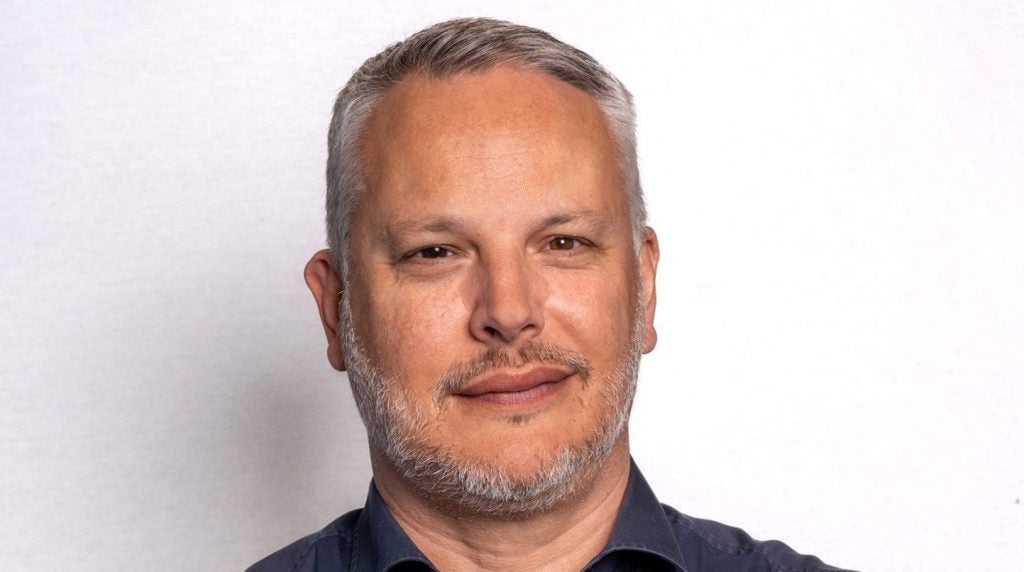
With the UK economy finally picking up steam, the asset finance industry is looking at how it can grow its slice of the pie when it comes to SME funding options. Jonathan Minter reports
Making informed decisions is key in life and vital for business success. An informed decision-maker usually makes the right call, however the fast pace of modern business life can often lead to less thought through, even impulsive, decisions. Through the recession many thought and spoke about the importance of educating clients, colleagues and staff.
The leasing industry is calling for education when it comes to SMEs, informing them about the various forms of funding available to them, especially asset finance, according to finance experts speaking to Leasing Life.
Mike Francis, head of asset finance at Investec states that approximately 18% of SMEs buy their equipment on personal credit cards, something he describes as "scary".
This is something the UK Finance & Leasing Association is aware of and actively looking into. Simon Goldie, who replaced Julian Rose as head of asset finance at the FLA at the beginning of May, tells Leasing Life: "Raising awareness is on the FLA’s agenda and absolutely on mine."
In his discussions with FLA members, Goldie says increasing awareness is a topic that keeps coming up, and it’s something he’s giving a lot of thought to.
How well do you really know your competitors?
Access the most comprehensive Company Profiles on the market, powered by GlobalData. Save hours of research. Gain competitive edge.

Thank you!
Your download email will arrive shortly
Not ready to buy yet? Download a free sample
We are confident about the unique quality of our Company Profiles. However, we want you to make the most beneficial decision for your business, so we offer a free sample that you can download by submitting the below form
By GlobalDataBefore joining the industry, Goldie worked in public policy, dealing with a range of issues such as tax, regulation and funding. In these roles, he engaged with policymakers and various members of different organisations to communicate whatever needed to be done and to develop appropriate messaging, which he says was a good match for the role of head of asset finance at the FLA.
To this he adds: "It’s an exciting time to be in this industry. There are challenges, of course, but it’s a really good time to deal with that and think about the future."
Part of the reason it’s such an exciting time is that the industry is starting to grow almost across the board.
Goldie says: "Some figures that caught my attention include: last year members provided £22.4bn of finance to the business sector and public services, and that represents almost 30% of fixed-capital investment in the UK. So far this year, in Q1, that’s up 13% on last year."
Goldie is particularly pleased with improvements in construction, saying: "In the world of construction, it always takes a little bit of time for it to seem as if its picking up against other sectors after a downturn. That’s because of order books taking a bit of time to come through. But actually our data has shown construction is picking up earlier than GDP figures show."
Francis explains part of the reason construction is doing so well is because the housing market is improving.
Mike Randall, chief executive of Close Brothers Asset Finance says that, although Close’s manufacturing and print divisions did particularly well over the past 12 months, all of their divisions experienced good strong sustainable growth.
Carl D’Ammassa, managing director of Aldermore Asset Finance agrees. He says: "We’re now at a point where there is a definite feel that SMEs are feeling more confident about the UK economy. There is definite demand for asset finance and other solutions – our invoice finance is finding the same thing as well."
Over 2013, Aldermore Asset Finance more than doubled its net profit, from £6.2m (7.6m) to £12.7m but, for Aldermore at least, a lot of this growth can be credited to taking market share as a result of ING ending its UK lease operation at the end of 2012.
Growing into the space ING left was common among many companies in the industry, D’Ammassa says. However, he adds that, even though a number of companies saw strong growth in 2013, total market growth was slower, only in single digits.
In 2014, though, the recovery has heated up, and as a result, the market is growing at a faster rate, reaching double-digits.
D’Ammassa says this is partly due to generally improved confidence in the market, but it is also: "Off the back of people coming in and filling the void left by ING, and now having the strength of proposition to push for further growth."
Francis saw a similar situation following ING’s departure, saying Investec saw a large spike in business volumes.
Not everyone saw the same levels of spike and Randall says the main benefit Close Brothers experienced was in the opportunity to acquire some of ING’s people. "We benefited from some of it [ING leaving the market], but the rest of it dispersed among new entrants and older competitors."
Randall adds that Close Brothers has been busy throughout the cycle of the recession, and spent the past year investing heavily into infrastructure projects to improve technology and drive efficiency.
The broad-based recovery and generally positive outlook has begun to attract new players, and Randall notes: "We’ve been busy through the cycle. A year ago if you looked at market competitor activity, it was definitely less last year than it is now. There are multiple entrants into the marketplace. The demand must be increasing."
The most recent announcement of this was Metro Bank, which announced plans to open an asset finance arm in May while Paragon re-entered the car finance market in February, after having been forced to pull out in 2008 in the depths of the credit crisis.
Dutch banking group ABN Amro is also opening UK operations with George Ashworth, formerly of Aldermore, taking charge as managing director of ABN Amro Lease.
ABN currently operates in the UK on a cross-border basis, with its origination team based in Utrecht and coming to the UK to engage with clients, as they have done for the past two years.
The company is currently preparing to open its UK branch, and Ashworth says: "If one sees the asset finance landscape through a 3D lenses of data, deposits and distribution, it’s not difficult to see the relative attraction of the UK asset finance industry."
According to Ashworth, ABN sees room and margin potential in the UK asset finance industry and Ashworth notes he sees "a lot of pent up demand in the UK – the UK is performing well when compared to the eurozone. Not only do we need to provide support to Dutch multinational businesses looking for asset finance in the UK for local operations, we’re also here supporting the overall bank’s growth as well as providing asset finance services to sister business lines already present in the UK," he adds.
These companies throwing their hats in the ring are in marked contrast to just a few years ago, when a number left to focus on "core" businesses, most famously ING Lease. This speaks well of the general confidence in the UK economy compared to a few years ago, as well as confidence specifically in the asset finance sector.
This confidence is borne out by FLA statistics. Goldie recounts: "There is a lot more confidence about asset finance. From a survey in February this year, 98% of respondents expect an improvement in the UK economy and 96% expect to see an increase in SME lending. New business generally and employment are both expected to increase."
However, while the UK market is improving, Ashworth believes the asset finance sector should have done better. He says: "Since 2008 the asset finance industry has had a window of opportunity to position itself as the natural choice for businesses looking to finance investment."
He believes this chance has been wasted. "We too readily appear to accept that our natural share of gross fixed capital formation (GFCF) aka investment is circa 28%," he says.
Part of the problem, Ashworth says, is that the large commercial banks, dominate the industry. Over the past six years, he says he’s not seen "any real evidence of product switching by the banks from pure debt-based lending to secured asset-based lending, particularly asset finance".
He continues: "It therefore makes me wonder if the bank-owning lessors have the data necessary to really discern the relative capital efficiency of their product base. If banks were in such a position, could we not have expected to see the UK asset finance industry perform better than it has in recent years."
It is also worth noting that, although the market is recovering, D’Ammassa notes: "We’ve gone from the asset finance market being worth over £30bn in 2007-08 to around £22-23bn. So there is some way to go to get back to those dizzying heights, when you could say that was the peak of awareness.
A large part of the problem comes from SMEs simply not being aware that asset finance is available, and Randall points to Close Brothers’ business barometer, which has shown that awareness of asset finance remains really low. "We need to champion our industry better," he adds.
Investec’s Francis highlights a Confederation of British Industry (CBI) report, which listed the main means for corporates to access finance, noting that asset finance and leasing was not on the list. "As an industry we cannot say we’ve done a good job, if the CBI sends out a list of 20 or so different forms of funding – a couple of which produce in a year as an industry what Investec does alone in a month," he concludes.
According to Francis, larger SMEs are not having difficulty accessing credit, due partly to government assistance and competition. However in terms of volume of companies, they are outweighed by smaller companies, who are less aware of asset finance as an option for them.
Using his own company as an example, Francis notes: "We have a book of 60-70,000 corporate, and a lot of them are very small companies, and we’ll lend to them. And plenty of other people will lend to them too."
Companies are using various methods to help increase the number of small companies using asset finance. One example of this is Close Brothers’ marketing campaign.
According to Randall: "We’ve spent the past few years joining up with the bank that owns us, and recently we’ve launched a new campaign to launch our brand under the banner of modern merchant banking.
"So you will probably see a lot more Close Brothers Asset Finance out there. We’ve teamed up with national media, and we’re going out with our branding and advertising areas to try and get our brand out there."
Companies are also working with various industry bodies to improve SME knowledge of the sector including the FLA, and Goldie says he’s already discussed this issue with a number of FLA members.
The FLA is also looking to continue building alliances with other professional and representative bodies either representing SMEs or engaging with SMEs in order to make sure asset finance is better understood by a wider array of customers.
Brokers at risk
As the UK market relies on a large number of brokers naturally a lot of these efforts involve them, and a number of companies speak of their work with the National Association of Commercial Finance Brokers (NACFB).
Francis explains how working with brokers can help companies like Investec reach more companies: "Like many funders, we don’t have the time or the money to go after all two million SMEs. That’s the main benefit of the broker network – one broker might have 1,000 contacts, so if we deal with the broker, we have a potential 1,000 deals."
As a result, Investec is focused on working with brokers and SMEs, reinforcing the message to both that Investec is willing to fund SMEs and to help brokers to widen their reach to SMEs, and they are not the only ones doing so.
Brokers themselves are in a transitionary period. The new regulator, the Financial Conduct Authority is still establishing itself, and while that happens there is an element of uncertainty around the future.
Aldermore’s D’Ammassa is similar to others who speak to Leasing Life as he says there are pros and cons to the regime. On the one hand, he says it will add to the professionalism of the broker market.
On the other, "my worry would be that people leave the market, and the visibility of the funding solutions out there evaporates because we have a number of smaller brokers who leave the industry."
One of the key issues appears to be licensing, which have caused confusion, according to Randall, while D’Ammassa says: "Some of these guys are best described as almost one-man bands, and my worry is: will they be robust enough to deal with the extra diligence that’s going to be required in this marketplace?"
There is a very real fear in the industry that the number of brokers could decrease as a result of some not being able to cope with the increased regulation, and as D’Ammassa puts it: "For introductory sources to leave the market, for SMEs to become less aware of the alternatives out there to their normal bank relationship would be a worry."
As a result, companies are doing all they can to support brokers. At the end of May, Hitachi Capital Business Finance launched a service for its brokers to help them cope with the new regulation, and says it has already seen a high uptake.
Similarly, Randall says Close Brothers is sending out performance managers to meet with brokers and offer them one-on-one advice, while others are offering conferences to help brokers understand what they need to do, including the FLA.
Investec is also helping its brokers, and Francis adds: "There are ways of efficiently meeting the regulator. You don’t have to answer every bullet point as you go; it’s just to create the environment where the regulation is thought about by the management of the company."
Beyond SMEs and brokers, there is also a desire to improve the amount of young blood coming into the industry.
This is something Randall at Close Brothers is particularly passionate about. Close Brothers is currently running a programme designed to get young school leavers into the industry, and he says about 90% of those on the programme don’t know about the industry when joining, but become very passionate once they come on-board.
Colin Manning, recruitment director at Manning Solutions tells Leasing Life that a number of major lessors have also run graduate programmes for years.
He adds: "Asset finance is rarely the first business sector that newly graduated candidates start to consider. However, our own experience shows that most enjoy and remain in the sector, realising that leasing offers a number of different career routes to match various skills and personalities."
Manning particularly notes that there has been a shortage in ability to identify candidates across a number of disciplines in the industry, particularly in credit risk.
Looking ahead, the opinion seems to be that the industry will continue to improve at a steady pace, with Francis describing the market as steady.
Changes both to the FCA and because of the FCA are expected, while Ashworth says he foresees "the trend of asset finance being reduced to being a product within a bank relationship manager’s armoury to accelerate".
Goldie is keen to watch for developments in lease accounting, and he notes: "The FLA has had a lot of dialogue with the IASB and we’ve taken some major steps forward prior to me joining. They’ve [The IASB] certainly been in listening mode but we’re not quite there yet."
The other area Goldie hopes to overcome is access to finance for SMEs, and he specifically mentions improving the amount of finance from the government that is accessed through asset finance. One example Goldie gives is attempts to get the British Business Bank to extend the enterprise finance guarantee scheme to include leasing, while Randall also mentions that Close Brothers has had great success getting money from the Regional Growth Fund into the hands of SMEs.
The government is just another body that is slowly learning the value of asset finance to the British recovery.
Along with brokers still learning about the FCA, SMEs learning about the value of asset finance and graduates learning about the potential career opportunities in asset finance, the UK industry still has a lot to do. n







